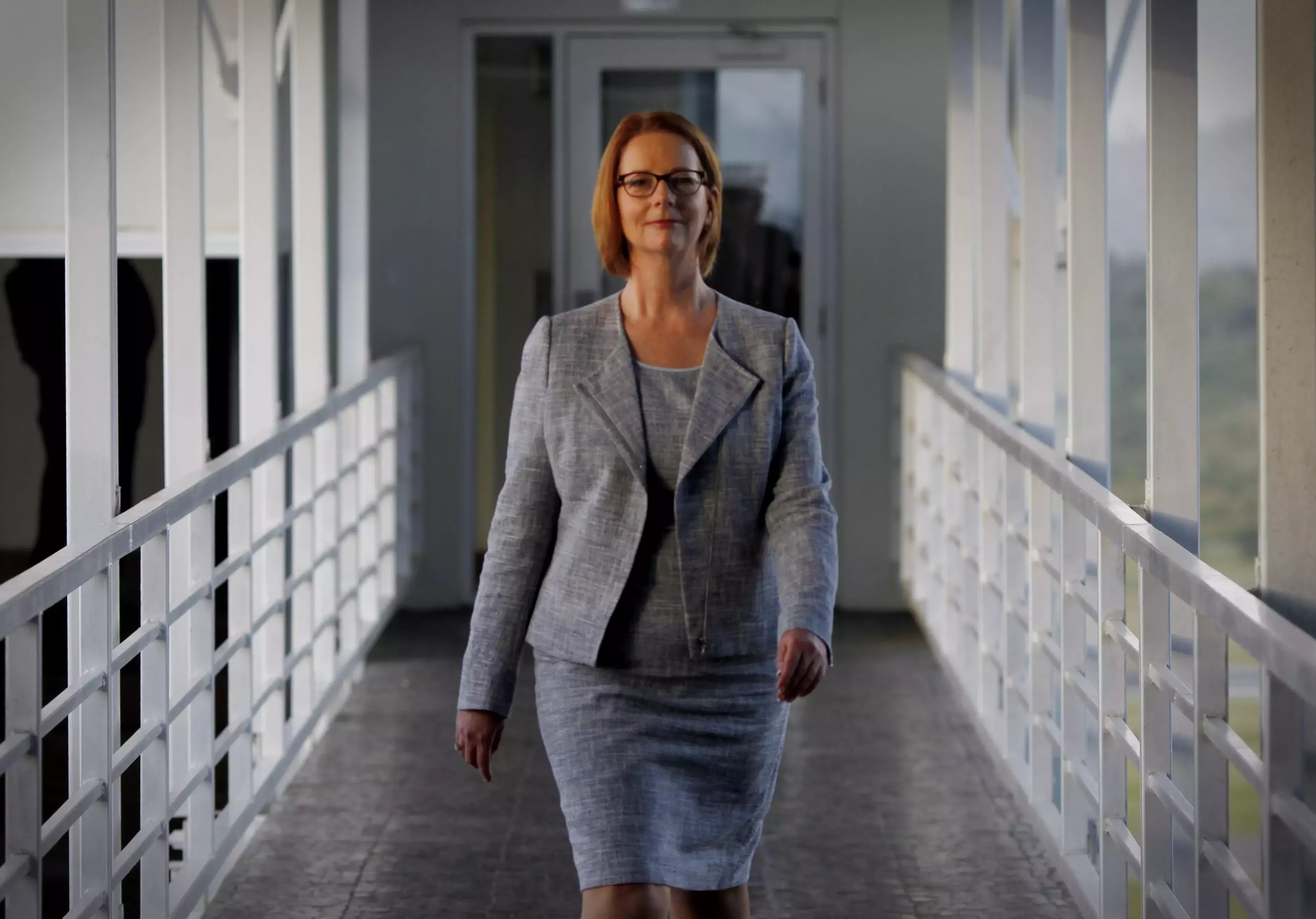JULIA GILLARD
Companion of the Order of Australia (2017)
Julia Gillard became Australia's 27th prime minister, and the first woman to hold this position, after a leadership ballot in the Labor Party in which she defeated Kevin Rudd.
29 November 1961
Barry, Wales
Tim Mathieson (2006-2021)
Australian Labor Party
Photo: Nic Walker and Louie Douvis/Fairfax
About
By any measure, the bar was set very high for Julia Gillard. She came to the fore within a divided party, to then lead the first minority government since the Second World War. All the while she also needed to weigh up whether she could harness, or ignore, the unique circumstances associated with being Australia's first female prime minister.

Photo: Angela Wylie/Fairfax
Julia Gillard took an interest in politics in her youth, and began working towards a political career as a student. She practised law for eight years before resigning to work for the Victorian Labor Party. In 1996, Gillard ran unsuccessfully for the Senate in the federal election, but was elected to the House of Representatives in 1998 in the seat of Lalor. Within five years she had become the Manager of Opposition Business and, by 2006, Deputy Leader to Kevin Rudd.
She entered into government for the first time when the Labor Party won the election in 2007, becoming a senior minister, holding several portfolios, and Deputy Prime Minister. By 2010, the party was facing increasing pressure to abandon key policies and, in a surprise move, Julia Gillard defeated Kevin Rudd in a leadership spill to become Prime Minister.
Neither of the major parties were able to secure an absolute majority but Labor was able to form a minority government after four of the six cross bench members supported Gillard. Her years as the nation's leader were difficult to manage and by 2013 it seemed impossible that the party would win the upcoming election. This led to a second leadership spill and, after the caucus voted 57-45 to replace Gillard with Rudd, she stepped down and retired from politics.
MILESTONES
National Broadband Network
The Gillard Government commenced full implementation of the National Broadband Network in 2011, following a trial rollout in Tasmania in 2010. The goal of the NBN is to improve internet access across Australia.
Clean Energy Act
The highly contested Clean Energy legislation was passed in the Senate in November 2011. This policy measure directed at climate change established a three year period of fixed carbon pricing to reduce emissions followed by an Australian emissions trading scheme.
Plain packaging laws
As a measure to deter Australians from smoking, the Gillard Government introduced plain packaging laws in November 2011. This reduced the attractiveness of cigarette packaging and made health warnings more salient.
Royal Commission into Institutional Responses to Child Sexual Abuse
In November 2012 the Gillard Government called for a Royal Commission to investigate claims of child sexual abuse in institutions including churches, schools and clubs, and the adequacy of their responses.
National Disability Insurance Scheme (NDIS)
In response to growing community awareness of a need for major reform of disability services, the Gillard Government established the NDIS in March 2013. The scheme aims to offer individualised support for people with permanent and significant disability, their families and carers.
Australian Education Act 2013
On 27 June 2013, the final day of the Gillard Government, the Australian Education Act passes the Senate. This Act implemented reforms proposed by the Review of Funding for Schooling (the Gonski Review) in 2011.
360° VIEW
Parliament
After the 2010 election, Gillard led the first minority government since the 1940s. On any vote, then, she would rely heavily on the six cross bench MPs. While Gillard acknowledged the difficulties of managing such a parliament, she set out to lead a reforming government and achieved the passage of many pieces of legislation.
Her stance on climate change remained contentious, and at one point a group of protestors in the gallery were ejected by the Speaker for disrupting Question Time, but the government was able to get the Clean Energy Bill passed in 2011.
In October 2012, reacting to the Leader of the Opposition, Gillard gave her renowned ‘Misogyny Speech’ in the House of Representatives, sparking considerable debate about the treatment of women in politics and in the broader Australian community. The speech achieved international attention, but failed to turn around the domestic opinion polls, which were looking dire for the Labor Party.

Photo: Fairfax

